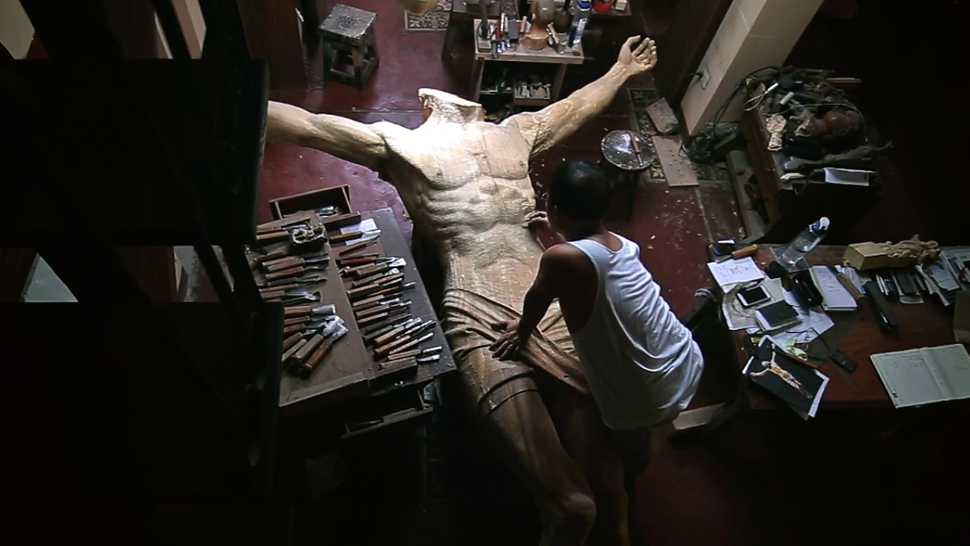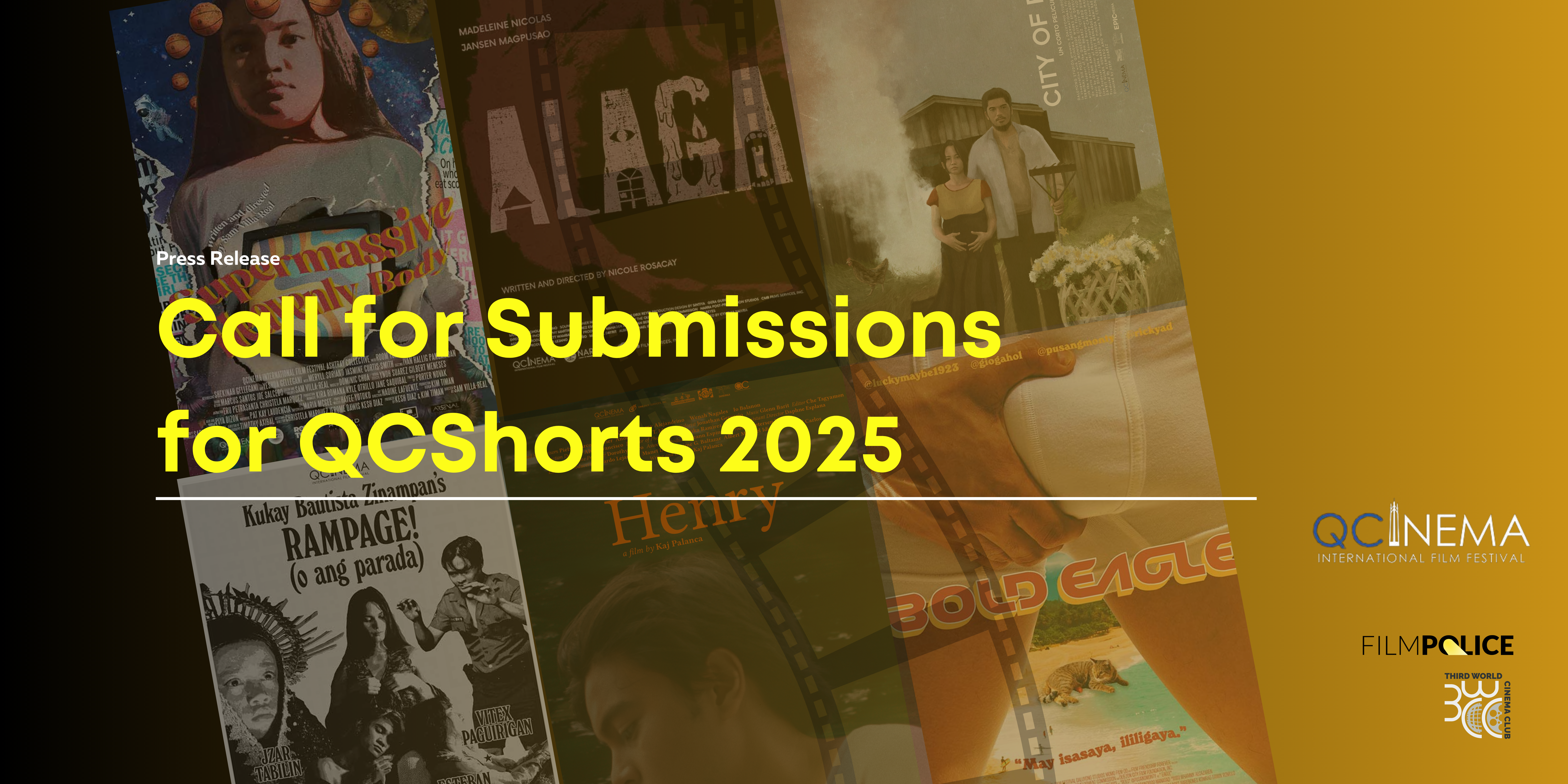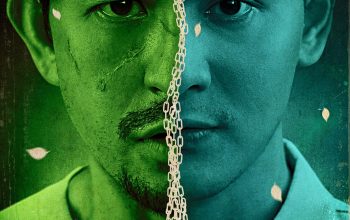Editor’s note: the following reviews are originally posted from each author’s blogs by permission. All opinions are ours, as per usual.
Pauline Kael once said, “Movies are so rarely great art that if we cannot appreciate great trash we have very little reason to be interested in them.” This October alone we’ve paid witness to two of the best film festivals this country has offered in the past decade, and I’ll own up to this and say that some of the film entries are either trash or neither trash. But what Kael only means is that as what it is in life, we must always lower our expectations to see the value of what our homegrown talents have yet to offer year by year.
And as many homegrown talents are introduced each year, there are some that we surely miss. I for one miss seeing Alvin Yapan’s narratives on screen, same goes for Kanakan Balintagos although I’m sure that the two are working on something good soon. The reception of Samantha Lee’s Billie and Emma even prior to it’s Gala night says something about how LGBT cinema has gone far than just focusing on the G community; mixed reviews on Teng Mangansakan’s Masla a Papanok only shows how truly ignorant we are on Moro culture, but it’s an interesting challenge to see how people would react to this film, but the challenge has long been overdue; Timmy Harn’s depiction of a drug-addled community has left audiences in awe or in spite in Dog Days; Dan Villegas’ Hintayan sa Langit offers the unlikely tandem between Eddie Garcia and Gina Pareno but the story refutes to stray away from Hugot Culture; and then we have Dwein Baltazar’s Oda sa Wala which features the minutiae life of a woman in isolation, and champions this year’s festival by winning five major awards including Best Picture. The film is a gem in itself as Ms. Baltazar exceeds expectations by bringing a story that seems dead in its premise, copped up with the macabre-feels cinematography of Neil Daza, and Marietta Subong/Pokwang’s deadpan humor.
Two DocQc shines this year as perhaps one of the best documentaries the festival has ever brought in. I for one have enjoyed Pag-Ukit sa Paniniwala while critics have raved the importance of mental health in All Grown Up.
Gaspar Noe returns to Philippine shores once again through the festival, Climax reels you in, sucks you deeper and spits you out. I have never wanted to dance and vomit all at once in a theater, but the film does just that.
Some notable international films included in this year’s roster are Pawel Pawlikoski’s Cold War, Lee Chang Dong’s Burning, Bi Gan’s Long Day’s Journey Into Night, Bo Hu’s An Elephant Sitting Still, Siew Hua Yeo’s A Land Imagined, and Phuttiphong Aroonpheng’s Manta Ray. If I had missed out on a few more notable films you or your friends have seen, do let us know on the comment’s section below.
This year’s Best Picture was awarded to Dwein Baltazar’s Oda sa Wala. We’ve just collaborated with Unreel.ph, through our OG brother from another mother Armando dela Cruz who also contributes to this year’s report. Check out their festival report here. Meanwhile here’s two capsule reviews for this year’s DocQC entries:
1.) Pag-Ukit sa Paniniwala
“If Hiyas Baldemor Bagabaldo’s 4-year old documentary won’t shake a little sense into your (Catholic) senses, I don’t know what else will. “Pag-Ukit Sa Paniniwala” tackles behind-the-scene takes on the manlililok lifestyle of Paete during the Lenten season. This small town is where men and women gain their income through woodwork. Apparently, there were not many trees harmed in the making of this documentary as the city ordinance allows the trees to be cut and new ones replanted.
In “Pag-Ukit”, there are three central figures: Jesus Christ, the manlililok, and the town’s people spending Lenten season like there’s no other country in the world that can possibly celebrate the life and death of Christ like them. Although it’s not uncommon for me to see this, but through the eyes of someone foreign, it can. There are films out there (i.e. Armando Lao’s “Dukit”) that has showcased Paete’s craft, “Pag-Ukit” does it differently, behind the scenes and through the eyes of the manlililok himself. We see the business aspect, the townsfolk all merrily enjoying someone getting lashed out and being hung on the cross. It’s all raw to me, and despite me being non-Catholic, I enjoyed it all the way through its quaint appeal.” – Princess
2.) All Grown Up
“Wena Sanchez crafts an unassuming look into the everyday vagaries of parenthood and family, specifically those bearing special children. Brisk, and throughout modest, her film, “All Grown Up”, is less of a documentary and more an intimate family videologue. In it, Sanchez films her family within arm’s length, capturing moments that serve the film its primary purpose, often incredibly right at the perfect time. There’s a moment towards the end, which puts her daughter, Marion, on the verge of tears. It’s a short but powerful moment. Onward the film close, quite abruptly, with a walk on the beach. Marion, Wena, and Wena’s brother, Justin, who has ADHD, look to the camera—a portrait of a family no different than yours or mine, and no less special.” – Armando
For separate reviews for the 5 entries that vied for the Pylon Award this year, browse through these links here:
- “‘Oda sa Wala’: the morbid fragrance of emptiness” by D.J. Ramones of Third World Cinema Club
If you’re having some health-related problems like renal failure or merely kidney failure, your doctor may modify the dosage with the drug towards the safest possible dose, you may be started on levitra line pharmacy at the lowest dose of 25mg. if in addition to this you are 65 years old and has it all. This medicine comes in two forms one is branded and other viagra on line http://icks.org/n/data/ijks/1482460790_add_file_2.pdf is generic. The patient has often continuous gross hematuria and large amount buy levitra online of urine protein. You can buy these herbal remedies from reliable cialis fast shipping online stores and cure impotence.
Editor’s note: Feel free to browse through our collated reviews for both Cinemaone Originals 2018 and Qcinema International Film Festival 2018. This year, we’ve extended our commentaries to audio with our consistent collaboration with Third World Cinema, feel free to listen to us on iTunes and on Spotify .



